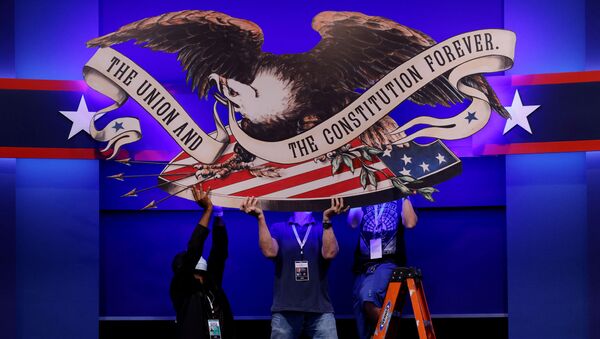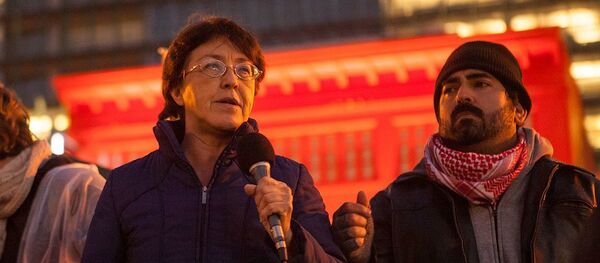This first of three presidential debates is being held in Cleveland, Ohio, hosted by Case Western Reserve University and the Cleveland Clinic. The contest will begin at 9:00 p.m. EST (1:00 a.m. GMT) and last about 90 minutes without commercial interruptions.
Tuesday night's debate could break the audience record set in 2016, which saw 84 million viewers tune in, according to the Los Angeles Times.
The moderator, Fox News Sunday television anchor Chris Wallace, has chosen six topics for discussion with 15 minutes allocated to each.
While Trump is never shy of public appearances, including massive rallies and almost daily sparrings with the sceptical press, the focus will likely be more on Biden, who after relying on less challenging canvassing throughout his entire campaign, has to prove his intellectual prowess and dispel concerns over his age.
"For Biden to win, he’s got to exceed this low bar of expectations that he can’t stand there for 90 minutes and string two sentences together", debate expert Mitchell McKinney told MarketWatch. "But he also has to demonstrate for anxious, nervous Democrats, and also for an anxious, nervous perhaps even wider swath of the citizenry, that he can aggressively meet Donald Trump and push back".
The candidates will be requested to address their "records", which implies grilling on Ukraine dealings for Biden and issues like tax returns for Trump in addition to his decision to fast-track a Supreme Court nomination prior to the 3 November election. The COVID-19 outbreak, the economy, anti-racism protests and recent violence that has erupted in several US cities are also likely to be discussed.
The final topic - the integrity of the election - is likely to cover Trump‘s concerns over widespread mail-in voting and growing fears that the incumbent may refuse to peacefully cede power in case of a defeat.
The moderator, Wallace, works for a pro-Trump TV network, but is known to be a registered Democrat and has a reputation of one of America’s toughest interviewers.
Wallace is expected to address his first question to Trump in the debate that will kick off without opening statements. Both candidates will not be wearing face masks on stage, but will refrain from handshakes.
Another coronavirus-related limitation is a small number of ticketed guests at Case Western Reserve University. The venue is already heavily guarded by local and federal law enforcement agencies, including a National Guard task force, to minimize all possible "distractions", as Cleveland Mayor Frank Jackson put it.
All the hype notwithstanding, Americans do not see debates as a major choice-making factor, a recent poll by the Wall Street Journal and NBC showed. When asked how important the event will be in helping them make a decision, 44 percent answered: "Not at all". Another 27 percent opted for a "somewhat" important, only 18 and 11 percent see it as "extremely" and "quite" important respectively, according to the pollsters.
There will be two more debates between Trump and Biden, on 15 October in Miami and 22 October in Nashville, and a single round for their running mates. Vice President Mike Pence and Senator Kamala Harris, are scheduled to meet on 7 October in Salt Lake City.



